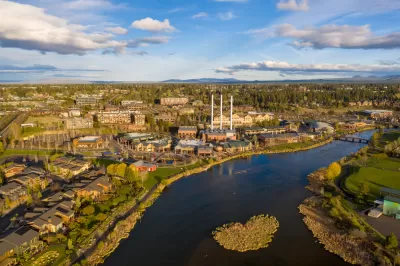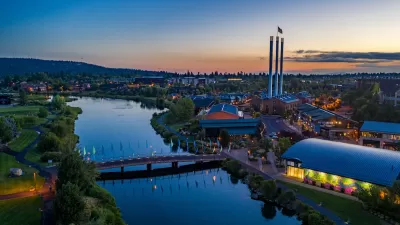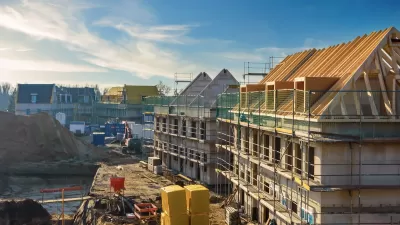Since the 1970s, the state has taken a comprehensive approach to development, regulating land use and urban growth at the state level.

In an article in Bend Source, Jack Harvel describes the unique land use policies that have shaped Oregon development for the past half a century. According to Harvel, “No other state regulates land use to the extent Oregon does, creating a framework for land-use planning that every city and county must adhere to, and is subject to review by the DLCD [Department of Land Conservation and Development].”
Senate Bills 100 and 101, passed in 1973, established the DLCD and seek to preserve open space and farmland and encourage density in cities, in part by establishing urban growth boundaries (UGB) for Oregon cities that promote infill development.
The article details the fraught history of the statewide framework, which have encountered opposition since the beginning, with critics saying that limiting growth drives up housing prices. But according to executive director of Central Oregon LandWatch Ben Gordon, the policy requires the state to build necessary housing and prevents sprawl and “takes into account a number of factors, not just profit.” Harvel writes that the framework “ensures an adequate supply of developable land to meet housing needs while prioritizing the majority of development within the urban growth boundaries.”
FULL STORY: Fifty Years Of Unique Land Use

Planetizen Federal Action Tracker
A weekly monitor of how Trump’s orders and actions are impacting planners and planning in America.

Maui's Vacation Rental Debate Turns Ugly
Verbal attacks, misinformation campaigns and fistfights plague a high-stakes debate to convert thousands of vacation rentals into long-term housing.

San Francisco Suspends Traffic Calming Amidst Record Deaths
Citing “a challenging fiscal landscape,” the city will cease the program on the heels of 42 traffic deaths, including 24 pedestrians.

Amtrak Rolls Out New Orleans to Alabama “Mardi Gras” Train
The new service will operate morning and evening departures between Mobile and New Orleans.

The Subversive Car-Free Guide to Trump's Great American Road Trip
Car-free ways to access Chicagoland’s best tourist attractions.

San Antonio and Austin are Fusing Into one Massive Megaregion
The region spanning the two central Texas cities is growing fast, posing challenges for local infrastructure and water supplies.
Urban Design for Planners 1: Software Tools
This six-course series explores essential urban design concepts using open source software and equips planners with the tools they need to participate fully in the urban design process.
Planning for Universal Design
Learn the tools for implementing Universal Design in planning regulations.
Heyer Gruel & Associates PA
JM Goldson LLC
Custer County Colorado
City of Camden Redevelopment Agency
City of Astoria
Transportation Research & Education Center (TREC) at Portland State University
Jefferson Parish Government
Camden Redevelopment Agency
City of Claremont





























